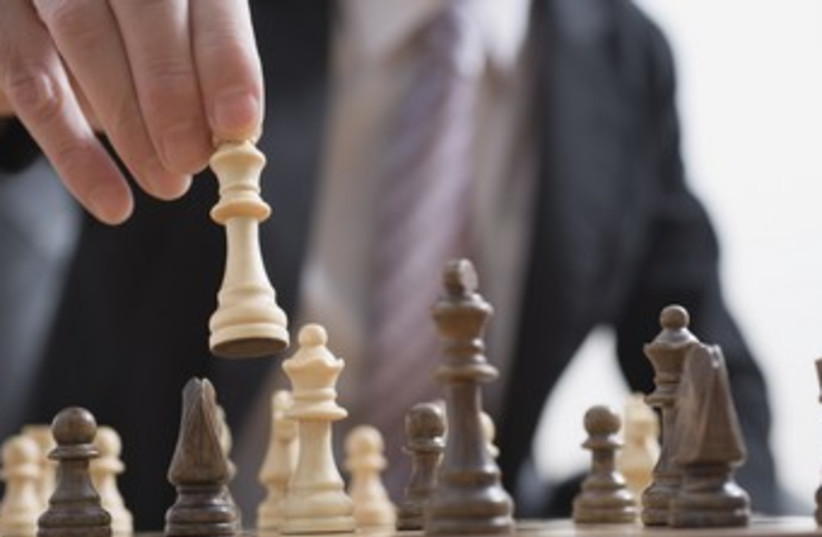Israelis have observed and learned in the past year that politicians and many of their followers are willing to bend their morals when engaging in politics, which brings out the worst in them.
Go into any social media platform, turn on the TV, or listen to a podcast, and it is easy to find examples of hypocrisy or bad behavior in political discourse. Political scientists at the University of Nebraska at Lincoln explain why this happens in a new study published in the journal Political Psychology and bluntly entitled “Politics makes bastards of us all: Why moral judgment is politically situational.”
Political scientists Kyle Hull, Kevin Smith, and Clarisse Warren showed the willingness of people to bend their morals – even behave unethically – when engaging in the political realm. Their results showed that hostility toward outgroups (an opposing political party or their views) is the driving factor for the moral ambiguity exercised when respondents switch from the personal to the political arena. And there is not just one guilty party.
The science behind the politics
Moral judgment is politically situational – people are more forgiving of those who transgress even though they share their views and more likely to behave punitively and unethically toward political opponents. Such differences are widely observed but not fully explained. Why do similar transgressions elicit different moral judgments in the personal and political realm?
“People, regardless of age or ideology, were more willing to engage in immoral behaviors and judgments if the behaviors were in the political realm,” said Hull. “And a lot of it was just driven by genuine internal dislike of the ‘other’ side.”

The researchers developed a survey and engaged four different samples of adults, totaling 2,472 respondents. The survey included nonpolitical and political moral behavior scales and political and nonpolitical moral tolerance scales.
“Basically, we were taking the same person and asking them virtually the same questions,” said Smith. “The only difference in the items is we changed ‘person’ to ‘politician.’ And that was enough to shift people’s moral judgment. It changes in a way that induces more flexibility in our moral assessments.” The research builds on Smith’s work exploring how political engagement and ideology drive moral values and choices, not the other way around.
That includes assessments of politicians’ bad behavior, as the coauthors found people are more morally tolerant of politicians they liked, similar to the behavior they were willing to tolerate from a friend. In an increasingly polarized and often toxic political environment, the researchers said the results highlight the harm of outrage politics.
“I think there’s some reason for concern,” Hull said. “As long as there is some internalized dislike of the outgroup, there’s certainly a risk of behaviors that may be involved when people are willing to act less morally. Politics makes us do things that we just normally wouldn’t do and tolerate things we wouldn’t normally tolerate. It brings out, sometimes, the worst in us.
“The way some politicians and media speak about the other party fuels that fire in a way. The more we engage in pitting one party or the other as the bad guys, and the more you feel that way, the more you are willing to set your morals aside.”
“If that’s true, then people will probably be using different standards for moral behavior or moral choices in their personal lives than they are in the political world, and that’s what we found. It’s not like politics makes bastards of the left or the right, or the young or the old, or the rich or the poor. Politics seems to make bastards of us all,” Smith explained.
Taking a look at US politics
“Christian evangelicals champion Donald Trump who repeatedly – and often publicly – violates the commandments underlying their system of ethics, and feminists defend Bill Clinton following revelations of sexual peccadillos raising clear questions about gender and power asymmetry,” they wrote. “Academic studies confirm that moral judgment is politically situational, conditioned by party loyalty and attachment to, or antipathy toward, politically relevant.”
The political scientists argued that the answer to this question lies in the adaptive function of morality: the need to suppress selfish behavior in order to ensure ingroup success.
The same values that constrain individual choice so as to achieve that adaptive goal can become maladaptive when extended to competing outgroups.
In environments where competing group interests are salient, people will generally apply lower standards of morality.
Politics, a coalitional struggle to control legitimate coercive power in which losing results in visible and salient ingroup disadvantage, is a prime example of such an environment, they continued.
It thus follows that in environments characterized by ingroup and outgroup competition, humans will be predisposed to be selective about moral judgment.
We term this the “politics makes bastards of us all” hypothesis, which specifically posits that standards of moral behavior and judgment will become looser in contexts where ingroup interests are pitched against outgroup interests. Individually, the stakes for violating moral norms are higher within the personal social realm where maintaining ingroup cohesion, and within-group reputation and status, are important.”
